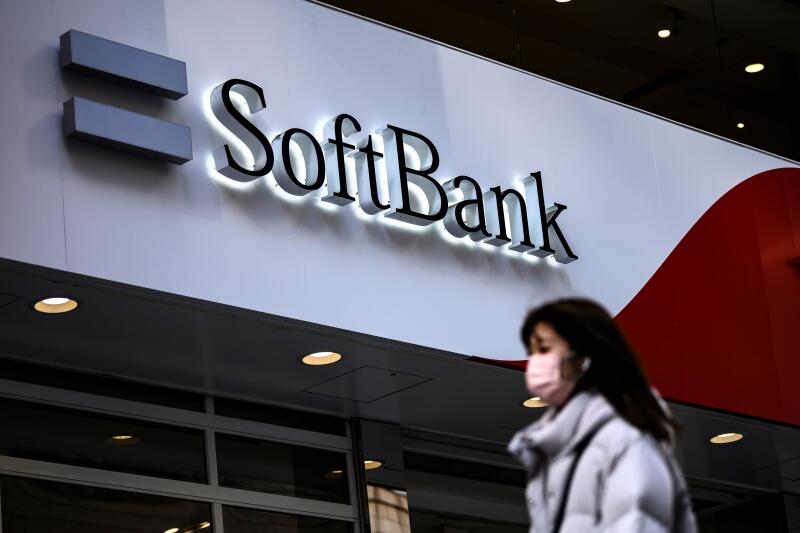SoftBank’s Vision Fund swings to record $10.7b profit on IPO boom
Sign up now: Get ST's newsletters delivered to your inbox

SoftBank Group recorded an 844 billion yen profit at its Vision Fund unit.
PHOTO: AFP
Follow topic:
TOKYO (BLOOMBERG) - SoftBank Group's Vision Fund posted a record 844.1 billion yen (S$10.7 billion) profit in a quarter bolstered by a stock market surge that lifted the value of its investments and helped portfolio companies like DoorDash go public.
The unit's income in the three months ended Dec 31 rebounded from a 223.6 billion yen loss a year earlier and surpassed the record profit of 784.4 billion yen set a quarter earlier. The company had a net income of 1.17 trillion yen in the December period and did not release operating profit figures.
Masayoshi Son's investment business is rebounding from the almost US$18 billion (S$24 billion) loss it posted last fiscal year during the pandemic slump. A global rally in technology shares has boosted the value of SoftBank's stakes in publicly traded firms like Uber Technologies and paved the way for listings like DoorDash's US$3.4 billion debut in December. At least six more portfolio companies are planning IPOs this year.
"There is a lot of liquidity out there and investors are particularly partial toward tech stocks," Justin Tang, head of Asian research at United First Partners in Singapore, said ahead of the earnings announcement. "At some point the IPO fatigue sets in, but doesn't seem like we are there yet. For now, the window of opportunity is open for SoftBank."
Mr Son's controversial decision to dabble in trading stocks and options cost him during the quarter. The company posted a 285.3 billion yen derivatives loss in the period. That led to an overall loss in the asset management arm of 113.5 billion yen, up from 85.2 billion yen in the previous three-month period.
Still start-up profits more than made up for the trading losses. DoorDash, a food-delivery company where SoftBank holds a 20 per cent stake, contributed US$7.1 billion in unrealized gains in the last nine months. Another US$11.2 billion of the gains in the last quarter came from holdings in public companies, with Uber responsible for about US$3.2 billion.
After shares plunged in March with the coronavirus outbreak, SoftBank unveiled plans to sell off 4.5 trillion yen of assets to reduce debt and fund buybacks. The selloff included part of its interests in Alibaba Group Holding, T-Mobile US and SoftBank Corp, the Japan telecommunications unit. SoftBank also announced a deal to sell its chip designer Arm to Nvidia for US$40 billion.
SoftBank held a total of US$22 billion of "highly liquid listed stocks" as of the end of quarter, including a US$7.39 billion investment in Amazon.com, US$3.28 billion in Facebook and US$1.38 billion in Alphabet. The operation is managed by its asset management subsidiary SB Northstar, where Son personally holds a 33 per cent stake.
The investments were accompanied by derivatives that amplified exposure, but SoftBank has been winding down its options strategy amid a backlash from investors. The fair value of SoftBank's futures and options positions came to little over US$1 billion at the end of December, compared with US$2.7 billion the previous quarter. Long call options on listed stocks have dwindled to US$1.68 billion from US$4.69 billion and short call options on listed stocks declined to US$238 million from US$1.26 billion of value.
SoftBank has also joined the blank-check company frenzy with plans for several special purpose acquisition companies. SVF Investment raised US$525 million last month to address sectors like mobile communications technology, artificial intelligence, robotics, cloud technologies and software. LDH Growth Corp I plans to raise as much as US$200 million to target Latin American and Hispanic markets.
SoftBank last week filed for two more SPACs, seeking to raise another US$630 million. The new SoftBank vehicles, SVF Investment Corp. 2 and 3, will target the same diverse areas of technology as the first, including mobile communications and artificial intelligence, according to filings Friday with the Securities and Exchange Commission.
"Consistently good performance by Vision Fund portfolio companies also helps the SPAC's prospects because investors can extrapolate management expertise," said Tang at United First Partners. "It underlines their skill in deploying capital."

